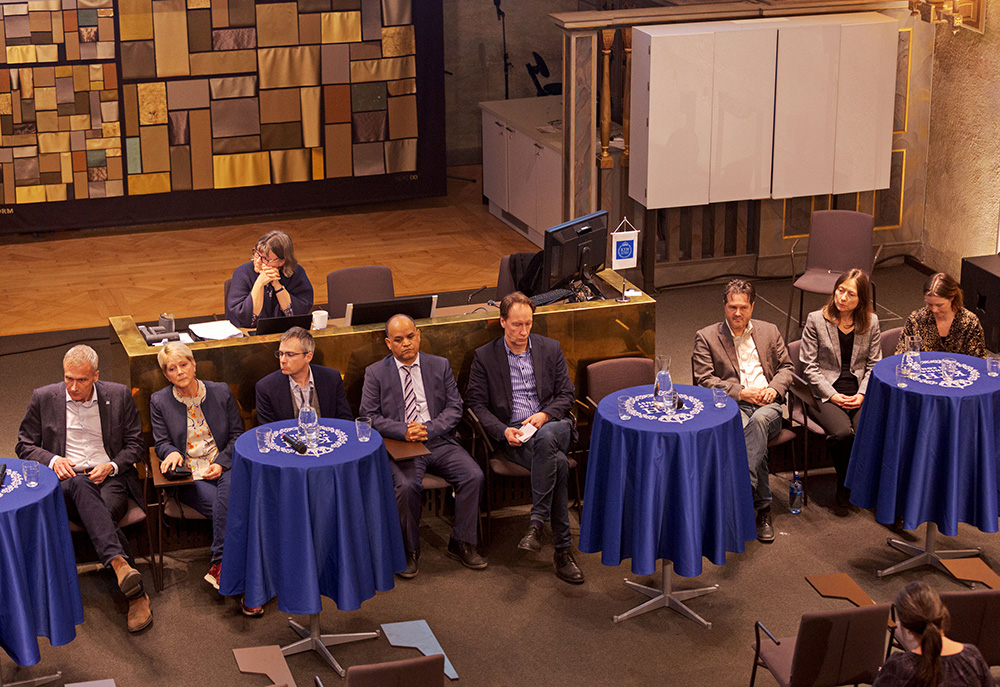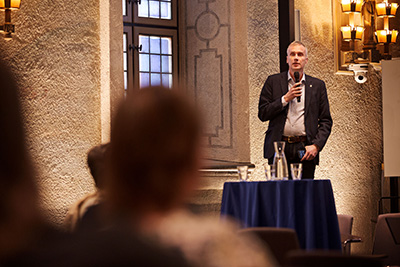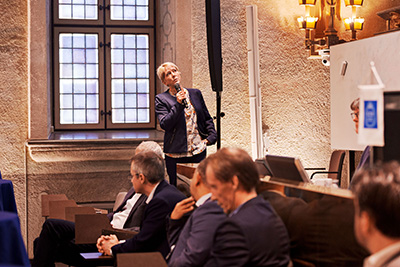
Faculty election with the focus on the collegial influence
How much of a say does the faculty council actually have? And what kind of influence is the faculty council predicted to have in the future? This was the principal line of inquiry that was addressed during a hearing ahead of the faculty council elections.

A new faculty council is due to be elected in the first week of April for the period July 2019 - June 2023. A pre-election hearing was organised on 28 March. Six of the seven candidates that have been proposed by the nomination committee attended, including Anders Forsgren and Sofia Ritzén, proposed as Dean and Vice Dean, respectively. In addition to the nomination committee candidates, three of the other nominees also attended.
The first question was posed by Professor Henrik Alfredsson.
“Do you know what you are letting yourselves in for?” he asked, with reference to the uncertainty surrounding what the new rules of procedure for the faculty council will contain.
Faculty influence has been diminishing year by year for a long time, and this decline has been exponential in recent years, Alfredsson claimed before asking how the candidates would try to reverse this trend.
“Is there any way to increase the faculty’s influence instead? Otherwise, honorary doctorates will be the other thing you get to decide on.”
Bo Cederwall, a nominee outside the nomination committee proposals, largely agreed with Alfredsson’s description of the situation.
“I think we must find some formal methods to become more influential. And I think we ought to put more emphasis on the democratic element in the line organisation as well.”
Even if all the candidates viewed strengthening faculty influence as important, not all of them was equally concerned.
“Of course it would have been preferable for the new rules of procedure to have been finalised, but I can’t imagine that we are going to change things hugely,” Joakim Lilliesköld, who is standing for re-election to the faculty council, explained.

“And directives from above are not the only thing that limits faculty influence,” Ritzén noted with a gesture to the no more than 20 colleagues seated in the room.
“I view the faculty not bothering itself to be represented as just as big a risk as not being able to represent the faculty. The challenge here is very much about getting more people involved.”
Reducing dependency on external financing and the relationship between quality development and quality evaluation were other issues that several candidates raised in their presentations.
Gunnar Karlsson banged the drum for lifelong learning.
“This is nowhere to be seen at KTH. It should never be the case that my car gets better service than the engineers we produce.”
Text: Ursula Stigzelius